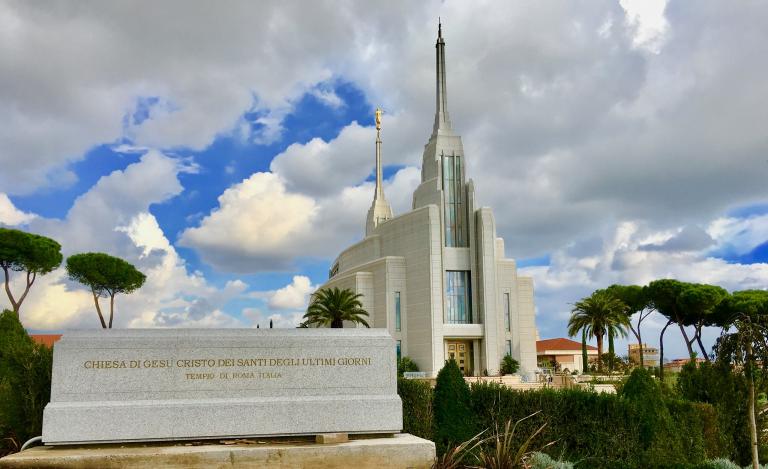
Over the years, I’ve run into the comment — often, but not always, from embittered and hostile ex-Mormons — that Mormonism (a term that I’ll use in certain ways until I think of a better one) is a shallow faith, lacking any and all intellectual or cultural merit, satisfying only to unreflective middlebrow business types (if not, indeed, only to dimwits).
Some years ago, Thomas Cahill was attempting, in his best-selling book How the Irish Saved Civilization, to explain the ancient Manichaean faith, and in the course of his comments, gratuitously insulted Latter-day Saints and their beliefs by saying something to the effect that Manichaeism, like Mormonism today, had no depth in it that would satisfy a serious mind.
I’ve heard the assertion more than a few times, and I’ve seen it several times just recently.
My Mormon Scholars Testify site was launched, in part, as a response to Cahill’s uncharitable remark. I guess I’ll need to crank that project up again.
Probably the first problem that I see with the claim is that, in my judgment, it’s simply not true. (Of course, it might be responded, I’m a very shallow person, so who cares about my “judgment”?)
Although the Latter-day Saint intellectual and cultural tradition is still young — we were, until fairly recently, a small and relatively rural group, concentrated and largely isolated in the Great Basin West — I think it’s beginning to come along. (There were few if any genuinely great Christian literary figures, philosophers, artists, or composers, let alone architects, at a comparable period in early Christendom — i.e., around the early third century.) To provide just one example, I suggest a serious engagement with the work of Blake Ostler.
Moreover, I believe that there is enormous depth, as yet still largely crying out for exploration, in our doctrine. As B. H. Roberts put it,
I believe “Mormonism” affords opportunity for disciples of the second sort: nay, that its crying need is for such disciples. It calls for thoughtful disciples who will not be content with merely repeating some of the truths, but will develop the truths; and enlarge it by that development. Not half — not one-hundredth part — not a thousandth part of that which Joseph Smith revealed to the church has yet been unfolded, either to the church or to the world. The work of the expounder has scarcely begun. The Prophet planted by teaching the germ-truths of the great dispensation of the fulness of times. The watering and weeding is going on, and God is giving the increase, and will give it more abundantly in the future as more intelligent discipleship shall obtain. The disciples of “Mormonism,” growing discontented with the necessarily primitive methods which have hitherto prevailed in sustaining the doctrine, will yet take profounder and broader views of the great doctrines committed to the Church; and, departing from mere repetition, will cast them in new formulas; cooperating in the works of the Spirit, until they help to give to the truths received a more forceful expression and carry it beyond the earlier and cruder stages of development. (B. H. Roberts, “Book of Mormon Translation,” Improvement Era 9/9 [July 1906]: 713.)
But, viewing the question from another angle, I can’t help but think that the matter of “depth” — if what is meant by depth is simply the kind of complexity that intellectuals and academics love to play and to show off with — is largely irrelevant.
It would be fatuous in the extreme for someone sitting in a crowded movie theater to ignore a scream of “Fire!” simply because it came from a lower class “rube” or “philistine,” someone whose hands are soiled with (ugh!) trade or calloused by manual labor, or because it was expressed in an uncouth way, or voiced in an unsophisticated accent, or unsupported by allusions to recent developments in critical literary theory.
I doubt that every early Christian was an elite intellectual, capable of holding his or her own with the philosophers of Athens or the scholars of Alexandria. But so what?
Could the Greek sophists Protagoras, Gorgias, Thrasymachus, and Cratylus have tied their rough contemporaries Ezra and Nehemiah in intellectual knots? Very possibly. But what would that matter?
Moreover, admonitions to kindness, charity, service, and other such positive attributes are always worthwhile, even if they’re dismissed as lacking “depth.” I would rather live in a society characterized by such qualities than among a colony of supremely clever intellectuals who lack them. (That might actually be a good description of Hell.)
And I have little patience for anybody disposed to reject the good news of Christ’s resurrection, or of the appearance of the Father and the Son to Joseph Smith, on the grounds that these accounts lack intellectual subtlety. Simple or not, if they’re true they’re of incomparable importance.












